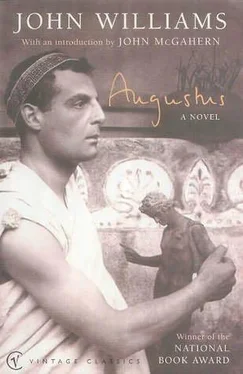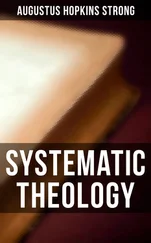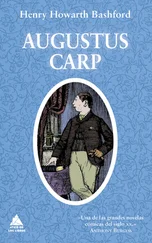John Williams - Augustus
Здесь есть возможность читать онлайн «John Williams - Augustus» весь текст электронной книги совершенно бесплатно (целиком полную версию без сокращений). В некоторых случаях можно слушать аудио, скачать через торрент в формате fb2 и присутствует краткое содержание. Жанр: Историческая проза, на английском языке. Описание произведения, (предисловие) а так же отзывы посетителей доступны на портале библиотеки ЛибКат.
- Название:Augustus
- Автор:
- Жанр:
- Год:неизвестен
- ISBN:нет данных
- Рейтинг книги:3 / 5. Голосов: 1
-
Избранное:Добавить в избранное
- Отзывы:
-
Ваша оценка:
- 60
- 1
- 2
- 3
- 4
- 5
Augustus: краткое содержание, описание и аннотация
Предлагаем к чтению аннотацию, описание, краткое содержание или предисловие (зависит от того, что написал сам автор книги «Augustus»). Если вы не нашли необходимую информацию о книге — напишите в комментариях, мы постараемся отыскать её.
Augustus — читать онлайн бесплатно полную книгу (весь текст) целиком
Ниже представлен текст книги, разбитый по страницам. Система сохранения места последней прочитанной страницы, позволяет с удобством читать онлайн бесплатно книгу «Augustus», без необходимости каждый раз заново искать на чём Вы остановились. Поставьте закладку, и сможете в любой момент перейти на страницу, на которой закончили чтение.
Интервал:
Закладка:
And yet they were my friends, and dearest to me at the precise moment when in my heart I gave them up. How contrary an animal is man, who most treasures what he refuses or abandons! The soldier who has chosen war for his profession in the midst of battle longs for peace, and in the security of peace hungers for the clash of sword and the chaos of the bloody field; the slave who sets himself against his unchosen servitude and by his industry purchases his freedom, then binds himself to a patron more cruel and demanding than his master was; the lover who abandons his mistress lives thereafter in his dream of her imagined perfection.
Nor do I exempt myself from this contrariness. When I was young, I would have said that loneliness and secrecy were forced upon me. I would have been in error. As most men do, I chose my life then; I chose to enclose myself in the half-formed dream of a destiny no one could share, and thus abandoned the possibility of that kind of human friendship which is so ordinary that it is never spoken of, and thus is seldom cherished.
One does not deceive oneself about the consequences of one's acts; one deceives oneself about the ease with which one can live with those consequences. I knew the consequences of my decision to live within myself, but I could not have foreseen the heaviness ofthat loss. For my need of friendship increased to the degree that I refused it. And I believe that my friends- Maecenas, Agrippa, Salvidienus-never could fully understand that need.
Salvidienus Rufus, of course, died before he could have understood it; like myself, he was driven by energies of youth so remorseless that consequence itself became nothing, and the expense of energy became its own end.
The young man, who does not know the future, sees life as a kind of epic adventure, an Odyssey through strange seas and unknown islands, where he will test and prove his powers, and thereby discover his immortality. The man of middle years, who has lived the future that he once dreamed, sees life as a tragedy; for he has learned that his power, however great, will not prevail against those forces of accident and nature to which he gives the names of gods, and has learned that he is mortal. But the man of age, if he plays his assigned role properly, must see life as a comedy. For his triumphs and his failures merge, and one is no more the occasion for pride or shame than the other; and he is neither the hero who proves himself against those forces, nor the protagonist who is destroyed by them. Like any poor, pitiable shell of an actor, he comes to see that he has played so many parts that there no longer is himself.
I have played these roles in my life; and if now, when I come to the final one, I believe that I have escaped that awkward comedy by which I have been defined, it may be only the last illusion, the ironic device by which the play is ended.
When I was young, I played the role of scholar-which is to say, one who examines matters of which he has no knowledge. With Plato and the Pythagoreans, I floated through the mists where souls are supposed to wander in search of new bodies; and for a while, convinced of the brotherhood of man and beast, I refused to eat any flesh, and felt for my horse a kinship that I had not dreamed possible. At the same time, and without discomfort, I as fully adopted the opposing doctrines of Parmenides and Zeno, and felt at home in a world that was absolutely solid and motionless, without meaning beyond itself, and hence infinitely manipulatable, at least to the contemplative mind.
Nor when the course of events around me altered did it seem inappropriate that I assume the mask of a soldier and play out that appointed role. Wars, both civil and foreign, I undertook throughout the world, on sea and land… Twice I triumphed with an ovation, thrice I celebrated curule triumphs, and was saluted as Imperator twenty-one times. Yet, as others have suggested, perhaps with more tact than I deserved, I was an indifferent soldier. Whatever successes I have claimed came from those more skillful in the art of battle than I-Marcus Agrippa first, and then those who inherited the skills of which he was author. Contrary to the libels and rumors spread during the early days of my military life, I was not more cowardly than another, nor did I lack the will to endure the hardships of campaign. I believe that I was then even more nearly indifferent to the fact of my existence than I am now, and the endurance of the rigors of warfare afforded me a curious pleasure that I have found elsewhere neither before nor since. But it always seemed to me that there was a peculiar childishness about the fact of war, however necessary it might have been.
It is said that in the ancient days of our history, human rather than animal sacrifices were offered to the gods; today we are proud to believe that such practices have so receded into the past that they are recorded only in the uncertainty of myth and legend. We shake our heads in wonderment at that time so far removed (we say) from the enlightenment and humanity of the Roman spirit, and we marvel at the brutality upon which our civilization is founded. I, too, have felt a distant and abstract pity for that ancient slave or peasant who suffered beneath the sacrificial knife upon the altar of a savage god; and yet I have always felt myself to be a little foolish to do so.
For sometimes in my sleep there parade before me the tens of thousands of bodies that will not walk again upon the earth, men no less innocent than those ancient victims whose deaths propitiated an earlier god; and it seems to me then, in the obscurity or clarity of the dream, that I am that priest who has emerged from the dark past of our race to speak the rite that causes the knife to fall. We tell ourselves that we have become a civilized race, and with a pious horror we speak of those times when a god of the crops demanded the body of a human being for his obscure function. But is not the god that so many Romans have served, in our memory and even in our time, as dark and fearsome as that ancient one? Even if to destroy him, I have been his priest; and even if to weaken his power, I have done his bidding. Yet I have not destroyed him, or weakened his power. He sleeps restlessly in the hearts of men, waiting to rouse himself or to be aroused. Between the brutality that would sacrifice a single innocent life to a fear without a name, and the enlightenment that would sacrifice thousands of lives to a fear that we have named, I have found little to choose.
I determined early, however, that it was disruptive of order for men to give honor to those gods who spring from the darkness of instinct. Thus I encouraged the Senate to declare the divinity of Julius Caesar, and I erected a temple in his honor in Rome so that the presence of his genius might be felt by all the people. And I am sure that after my death, the Senate will in like manner see fit to declare my divinity also. As you know, I am already thought to be divine in many of the towns and provinces of Italy, though I have never allowed permission for this cult to be practiced in Rome. It is a foolishness, but it is no doubt necessary. Nevertheless, of all the roles that I have had to play in my lifetime, this one of being a mortal god has been the most uncomfortable. I am a man, and as foolish and weak as most men; if I have had an advantage over my fellows, it is that I have known this of myself, and have therefore known their weaknesses, and never presumed to find much more strength and wisdom in myself than I found in another. It was one of the sources of my power, that knowledge.
It is afternoon; the sun begins its slow descent to the west. A calm has come upon the sea, so that the purple sails above me hang slack against the pale sky; our boat sways gently upon the waves, yet does not move forward to any perceptible degree. The oarsmen, who all day have been taking their leisure, look at me with a bored apprehension, expecting me to rouse them from their ease and urge them to labor against the calm that has stilled us. I shall not do so. In half an hour, or an hour, or two hours, a breeze will rise; then we shall make for the coast and find safe harbor and drop anchor. Now I am content to drift where the sea will take me.
Читать дальшеИнтервал:
Закладка:
Похожие книги на «Augustus»
Представляем Вашему вниманию похожие книги на «Augustus» списком для выбора. Мы отобрали схожую по названию и смыслу литературу в надежде предоставить читателям больше вариантов отыскать новые, интересные, ещё непрочитанные произведения.
Обсуждение, отзывы о книге «Augustus» и просто собственные мнения читателей. Оставьте ваши комментарии, напишите, что Вы думаете о произведении, его смысле или главных героях. Укажите что конкретно понравилось, а что нет, и почему Вы так считаете.











